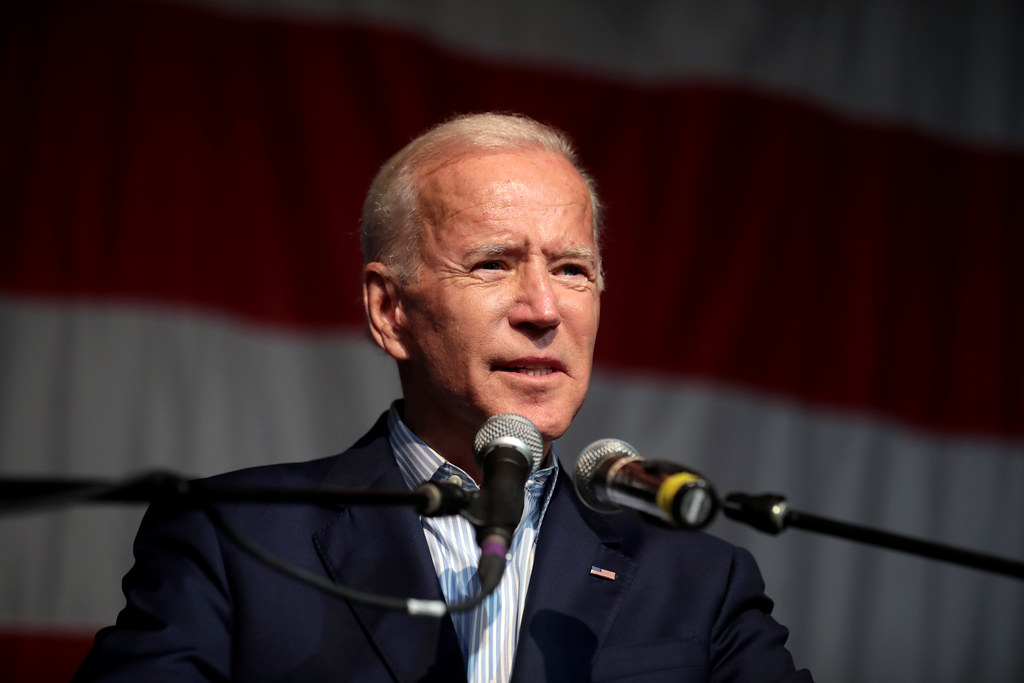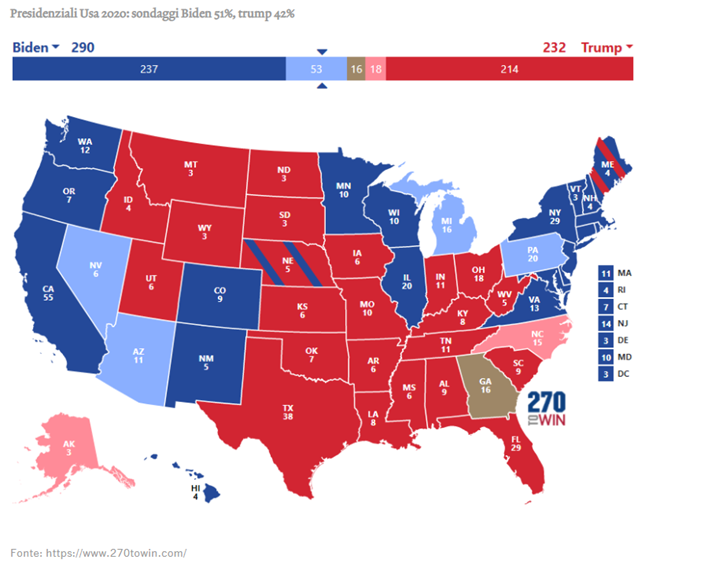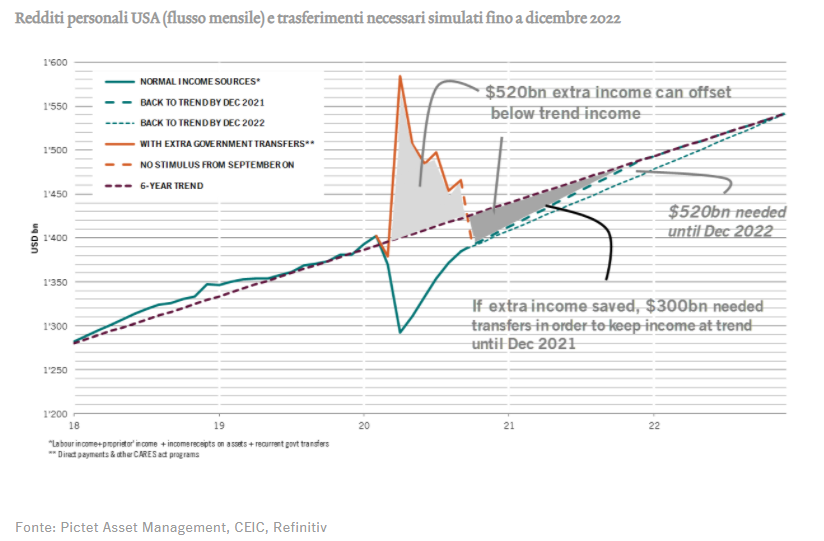Who and why in the US markets toasts for Biden’s victory

The market reaction to Biden's victory. The analysis by Andrea Delitala, Head of Euro Multi Asset at Pictet Asset Management
The alleged "Blue Sweep" did not exist and we were instead left with a "Divided Government", but the market does not mind this, on the contrary: economic policy will be similar to that of recent years without however the erratic interference of the Trump presidency. And in fact, the markets immediately cast their vote, with stocks rising sharply, falling rates and few currency movements. In fact, a divided Congress is interpreted as incapable of approving the most radical maneuvers on the democratic agenda, such as higher taxes on higher income brackets and corporate profits and more regulation in the energy, financial and pharmaceutical sectors, as well as in the technological one, where there could have been a squeeze of the anti-trust against big tech (pharmaceutical stocks should be the first beneficiaries of the softer line of "Divided Government", given that the technological sector weighs, in any case , valuations not cheap).

once the eventuality of the blue wave is conspired, the markets can toast to the change at the top: the inauguration of Joe Biden in the White House frees, in fact, the political landscape of Donald Trump's difficult to predict leadership. The election returns to the United States a moderate leader who, by making a virtue of necessity, could be able to make even the most centrist Republicans, disillusioned by Trump, collaborate with his government. A political line of national and more bi-partisan reconciliation would be highly desirable in a complicated phase for the United States and for the world, still grappling with the Covid-19 pandemic. All this obviously requires Trump's exit which, not being a figure of an 'apparatus', should be quite easy, even if it will be negotiated with the interested party.
The fields in which the change of leadership will be most noticeable will be those in which the President has greater decision-making autonomy, ie in matters of foreign and commercial policy. It is reasonable to expect a return to multilateralism and the abandonment of Trump's aggressive dialectic: if on the one hand the anti-Chinese rhetoric is destined to persist, albeit with more moderate tones (the rivalry with the Asian giant is, in fact, two partisan), a renewed membership of the United States in international organizations, reviled by the last administration, starting with the WTO , is plausible. An attitude that on the financial markets should favor emerging assets over the next few years.
But not only that, as part of the greater democratic commitment on environmental issues, Biden has already announced that the US would immediately fall within the guidelines of the 2015 Paris Agreement on the fight against climate change (positive for the energy titles renewables and, in general, for actions related to the energy transition towards more sustainable models).
In short, the priority of the new administration, in whatever way this will ultimately come together, will certainly be to avoid the now famous "fiscal cliff", that is the fiscal vacuum that would be created if it were not given following the policies of transfers to the population activated in the spring to stem the socio-economic impact of the Coronavirus pandemic.
Although the US labor market has historically been extremely flexible, as evidenced by the partial decline in unemployment already starting from the summer months, it could nevertheless take 1 or 2 years to reabsorb the decline in labor income caused by the current crisis, especially if we were to wait a few more months before having an effective vaccine against Covid-19: forecasts attribute a 72% probability to the fact that a vaccine approved by the FDA will be distributed in the US by May 2021. In the meantime, with Biden as President, the the possibility of a management of the pandemic at a federal level, no longer by a single state, which could involve more drastic measures to contain the virus, along the lines of what has been done in Europe, with all the socio-economic implications that follow.
An all the more urgent is an emergency tax package, capable of avoiding an excessive collapse in disposable income and, consequently, in consumption. From this point of view, a clear victory by the Democrats would no doubt have been a greater guarantee. In fact, the fiscal maneuver would have been much more substantial in the case of a "Blue Sweep", but this does not exclude the fact that the minimum package of support measures of $ 500 billion ("skinny budget") is reached, perhaps already by the end of the year, in the so-called “lame duck” period that characterizes the moment of handover within the administration. It is also legitimate to expect something more if Biden manages to bring the country together, but what seems certain is that, on the fiscal front, the policies of support to the population, with the aim of redistributing and reducing social inequality, are unlikely to due to the Democrats' failure to control Congress.

Investors' eyes will therefore return to look insistently in the direction of central banks. At its meeting on November 5th, the Fed has kept monetary policy unchanged for the time being. In the coming months, however, it could be forced to pick up the pace at which it injects liquidity into the economic-financial system: without necessarily returning to the liquidity tsunami we witnessed in the spring, it is likely that the projections that they forecast will have to be revised from here to $ 120 billion monthly flows from QE ahead or that further unconventional measures to stimulate the economy and maintain financial stability (including long-term interest rate control) will have to be extended.
The die is cast. The American elections gave investors back a favorable scenario, freeing them from the unpredictability of the leader of the world's leading economy; a divided Congress will deal with the management of the economic crisis due to the pandemic without major ideological impulses. Now, everyone's attention will return to focus on the great battle of our times, the fight against the COVID-19 pandemic.
This is a machine translation from Italian language of a post published on Start Magazine at the URL https://www.startmag.it/economia/chi-e-perche-nei-mercati-usa-brinda-per-la-vittoria-di-biden/ on Sat, 14 Nov 2020 05:48:35 +0000.
